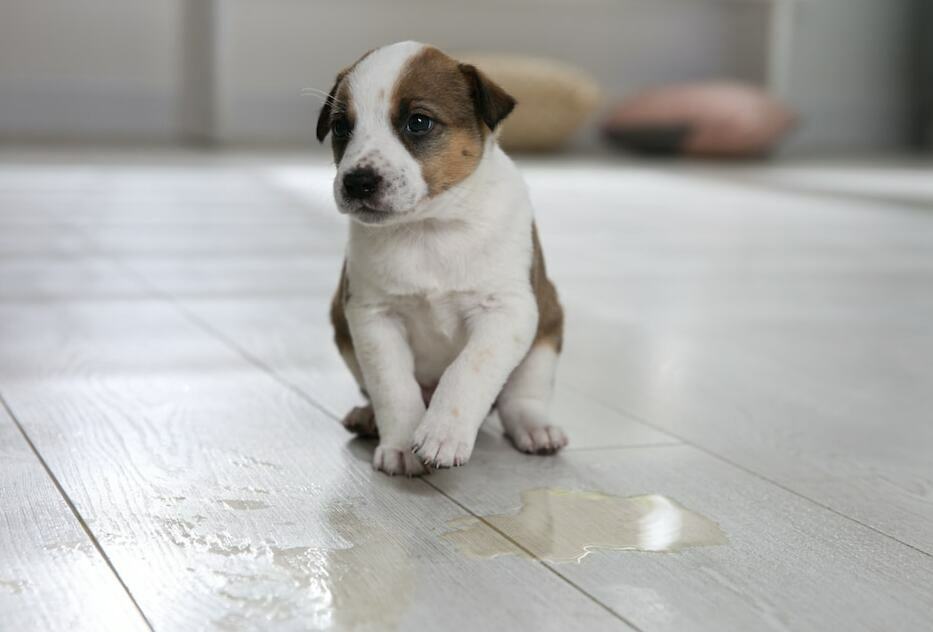A Urinary Tract Infection (UTI) in dogs is commonly due to bacterial causes. When bacteria make their way into the bladder, it can cause an inflammation called cystitis. Fortunately, there are certain things you can do to help your pooch.
For instance, your vet may prescribe your dog with UTI some antibiotics to flush the bad bacteria out of the bladder. Natural remedies like yogurt can also purvey good bacteria to fight the bad ones while improving gut health. Cranberry supplements are also effective for dogs with UTIs as it reduces the pH levels in the urine, thus preventing bacteria in the bladder.
These are just some of the things you can do to help your pup with a urinary tract infection. We’ve added a few more tips below, so you can help your precious pet feel better fast.
9. Antibiotics

And lastly, antibiotics are usually prescribed to canines suffering from UTI. One common prescription is Clavamox. These prescribed medications are to be taken for a week or two, depending on how severe the condition is.
What antibiotics do is that with the help of both amoxicillin and clavulanic acid, they are able to flush the bad bacteria out from your pet’s bladder, which eliminates symptoms over time. Some dogs experience relief as fast as 48 hours after medication while others take overnight.
8. Yogurt
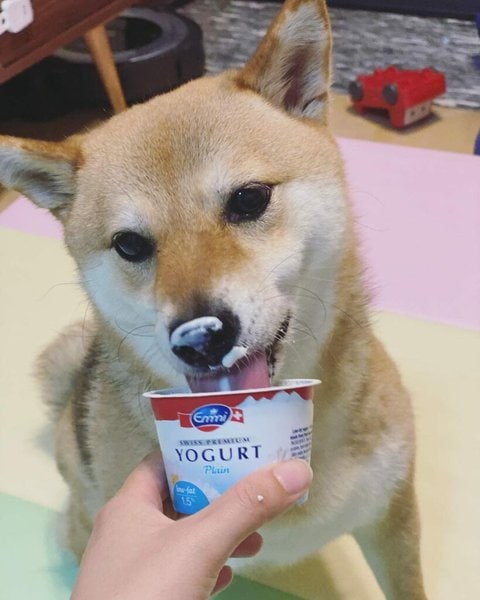
When the gut is stronger, this can help address medical conditions linked with a bacterial infection such as UTI. Your dear fido can benefit from eating probiotic-rich foods, like yogurt, especially if urinary tract infection is an issue.
Cultured dairy products contain good bacteria that help the gut. This helps reduce the risk of UTI while promoting faster recovery for those who already have an infection.
7. Surgery
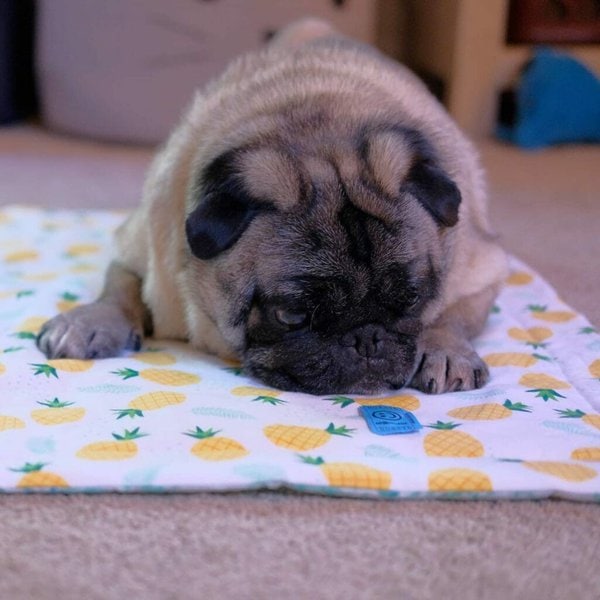
Another thing that can help with serious cases of urinary tract infection in dogs is surgery. This is usually recommended when there are large urinary stones present in the bladder. If dietary changes and other UTI medications don’t help, surgery may be the next resort.
Most often, canines are able to handle surgical procedures for urinary tract infection. It is also likely to observe improvements in a week or two.
6. Canine Bladder Support Supplements
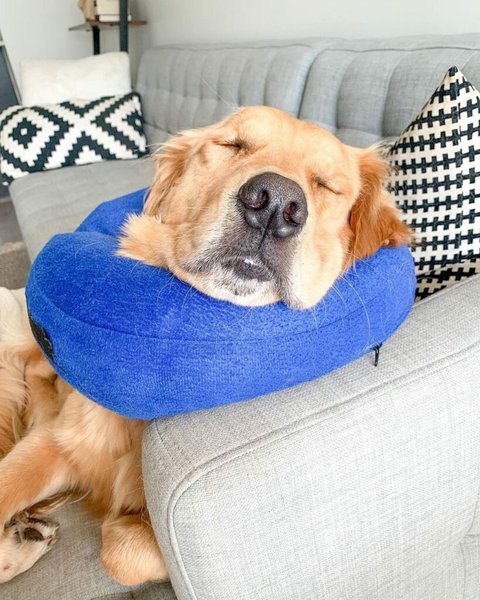
If urinary tract infections happen frequently, an ongoing supplementation may help address this issue. In this case, taking canine bladder support supplements can promote an improvement in your pup’s UTI concern.
These supplements include probiotics, prebiotics and antioxidants that help the good bacteria in the gut. By doing so, medical conditions due to bacterial causes, like UTI, can be prevented because of a stronger gut lining.
5. Vitamin C

Vitamin C acidifies urine while preventing bad bacteria from adhering to the bladder wall. Thus, they are unable to develop and populate, which protects against UTIs.
It is important to inquire from your vet regarding the appropriate vitamin C dosage to give to your pooch. Some dogs may benefit from a 500 mg vitamin C tablet crushed and sprinkled over food and given for 7 days. But be sure to seek a professional’s advice before doing so.
4. Apple Cider Vinegar

Apple cider vinegar helps to reduce the pH level present in your puppy’s urine. So, it can help relieve symptoms of UTI as it neutralizes bad bacteria developing in the bladder.
A couple of tablespoons of apple cider vinegar mixed with water or food is suitable for big dogs and a teaspoon for small canines suffering from UTIs. Do this twice a day for up to a week, depending on the severity of the condition.
3. Cranberry Supplement
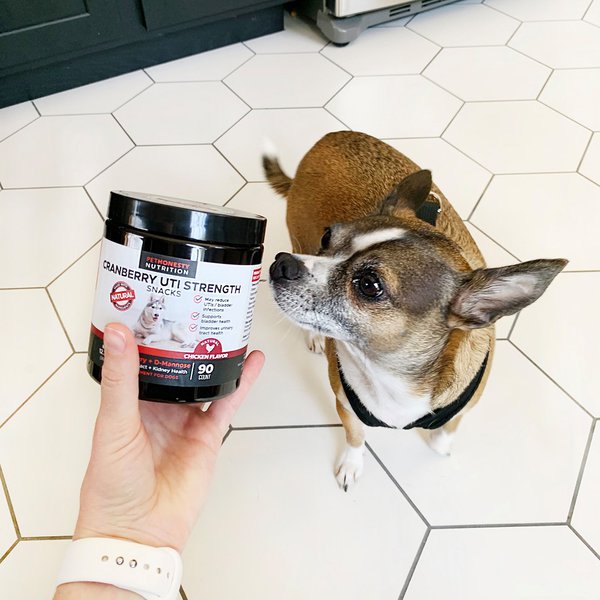
Just like apple cider vinegar, cranberries prevent bacterial development in the bladder by decreasing the pH levels in the urine. This is why it is worth a try for dogs suffering from urinary tract infections.
Cranberry supplements are easy to take and can help with this condition. These are also better than giving pure cranberry juice, which is too sweet for dogs and can lead to weight gain.
2. Urethral Sphincter Medication
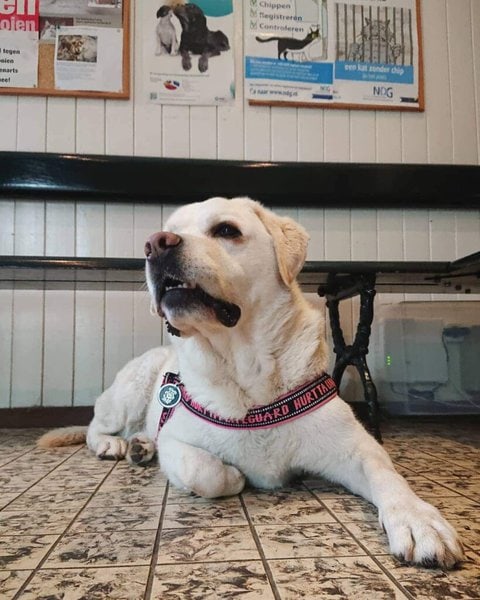
Dogs with UTIs tend to have a difficult time controlling their pee. This is why accidents often arise, which is one of the symptoms of canine urinary tract infection.
In this case, a urethral sphincter medication may help your pet to control his urine. When incontinence is an issue, this medication can tighten the urethra and prevent the accidental release of urine.
1. Anti-Inflammatory Medication

Since urinary tract infection is linked with an inflammation of the bladder, then your vet may prescribe anti-inflammatory medication to your pet. This is usually administered at night to make sure that there is a higher antimicrobial amount in the bladder to promote relief.
There are certain types of anti-inflammatory medication that veterinarians recommend to dogs. Some of these include amoxicillin, cephalexin, ampicillin, and a few others. It is best to consult a specialist before giving any of these to your pooch.
Related Questions
How Do You Know If Your Dog Has A Urinary Tract Infection? Urinary tract infections in dogs include certain symptoms such as fever, cloudy urine, licking the urinary opening, and frequent accidents indoors. Some canines may whimper as though in pain or discomfort while peeing, as well. Do note that if your dog exhibits such symptoms now, it is best to visit a vet soon.
Can A Dog’s Bladder Infection Go Away On Its Own? No, bladder infections are only going to get resolved with proper treatment. It is also possible that symptoms of a bladder infection can be indications of other underlying issues, which is why it is best to treat this condition right away.
Should You Scold A Dog For Peeing Inside? It is not advisable to scold your dog for peeing inside, as this may adversely impact its behavior. When you yell at your pet, it can make things worse, as your pooch will be afraid of peeing in front of you when taken outside.

